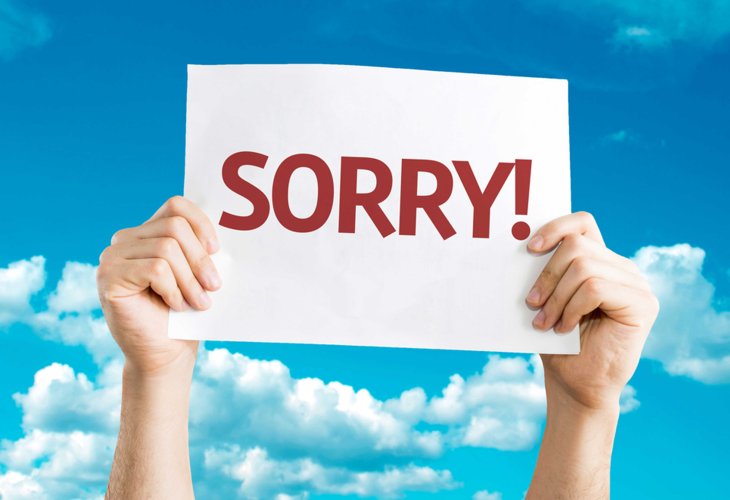Jewish Law
He Apologized 100 Times and You Didn't Even Notice!
Apologies can come in many forms. Do we know how to hear them?
 (Photo: shutterstock)
(Photo: shutterstock)A few days before Yom Kippur, a certain rabbi called me. He told me the following story:
"The out-of-town community where I live is quite small, but we have two synagogues. Why? Until a few years ago, everyone prayed in the same synagogue, but one day a major dispute broke out which eventually led to a split. A number of people, including myself, opened a separate synagogue and appointed a rabbi.
"I want to clarify that there were no raised voices or fights -- the split happened relatively quietly. But it was still painful. And ever since, our synagogue doesn't invite the rabbi of the other synagogue to speak, and vice versa. We have our rabbi, and they have theirs."
Then, one Shabbat, it was the anniversary of the passing of this rabbi's father...
"According to custom, I wanted to be given the Maftir aliyah to the Torah and lead the Musaf prayer. However, that Shabbat was also the bar mitzvah of the son of one of our community members. The gabbai contacted me in advance, and told me, 'Look, you know that according to halachah, a bar mitzvah boy's aliyah takes precedence over all other obligations, so we really have no choice but to give the Maftir aliyah to the bar mitzvah boy.'
"Of course I understood. So, although it was uncomfortable for me to do so, I approached the gabbai of the other synagogue, told him the story, and asked if they would mind if I came to pray with them that week. The gabbai checked that it would be possible and then agreed."
Shabbat arrived, and the rabbi made his way to the other synagogue.
"I had barely begun the prayer when one of the congregants sprang to life. 'Shame on you! Get down from the bimah! This minute! How dare you! Our rabbi isn't allowed to come to your synagogue, and you come to lead prayers here? What chutzpah!'
"I'm sure that if their rabbi had been there, this man wouldn't have dared to say such things, but the rabbi was out of town that Shabbat. I didn't know what to do so I just stood there in silence, feeling absolutely mortified.
"Then the gabbai got up and told the man: 'Excuse me, I invited him here and I ask you to respect my decision. Please, Rabbi, continue with the prayer.'
"I did manage to continue, but I felt awful. But the worst thing is that to this very day, that man hasn't apologized. Our town is a small one, and we see each other on the street regularly. He hasn't given me the slightest indication that he regrets what he did. And it was two years ago!
"I just wish he would apologize, clear the air, and then we could put it behind us. I've even considered taking the initiative myself and asking him if he could please say he's sorry, as I really want to be able to forgive him."
The rabbi fell silent and I was silent too for a moment. Then, I said, "Forgive me for asking, but has he really said nothing at all to you in the past two years? He doesn't even meet your eye when you encounter him?"
"No, not at all," the rabbi said. "I mean -- he always says, 'Hello' or 'Good morning' if we happen to pass each other on the street, just as he did before this happened. And there's another strange thing, now that you mention it. When my son got married last year, he came to the wedding and wished me Mazal Tov, even though when my daughter got married three years ago he didn't even come."
"Rabbi," I said, "let's look at it this way. In the past two years there were just over a hundred weeks. You encountered this man in the street let's say once a week on average?" He nodded. "And each time he greets you. Each time he said, 'Hello' or 'Good morning,' he was essentially asking for your forgiveness. One hundred times!"
The rabbi frowned, and I could see that my words hit him hard.
Since I could sense that he was hurt, I tried to explain. "Rabbi, there are people who find it very difficult to say the word 'sorry,' so they say it through body language. In a sense, such an apology is even more authentic than just words. There are people who go through the motions of 'apologizing' but their whole demeanor screams out that they're not really sorry at all. Whereas this person clearly feels bad about what happened and is trying to make amends. His pride won't let him speak the words but he's doing what he can."
The rabbi thought for a moment and suddenly smiled. "You know, Rabbi Margalit," he said emotionally, "you're absolutely right, and I forgive him with all my heart."

